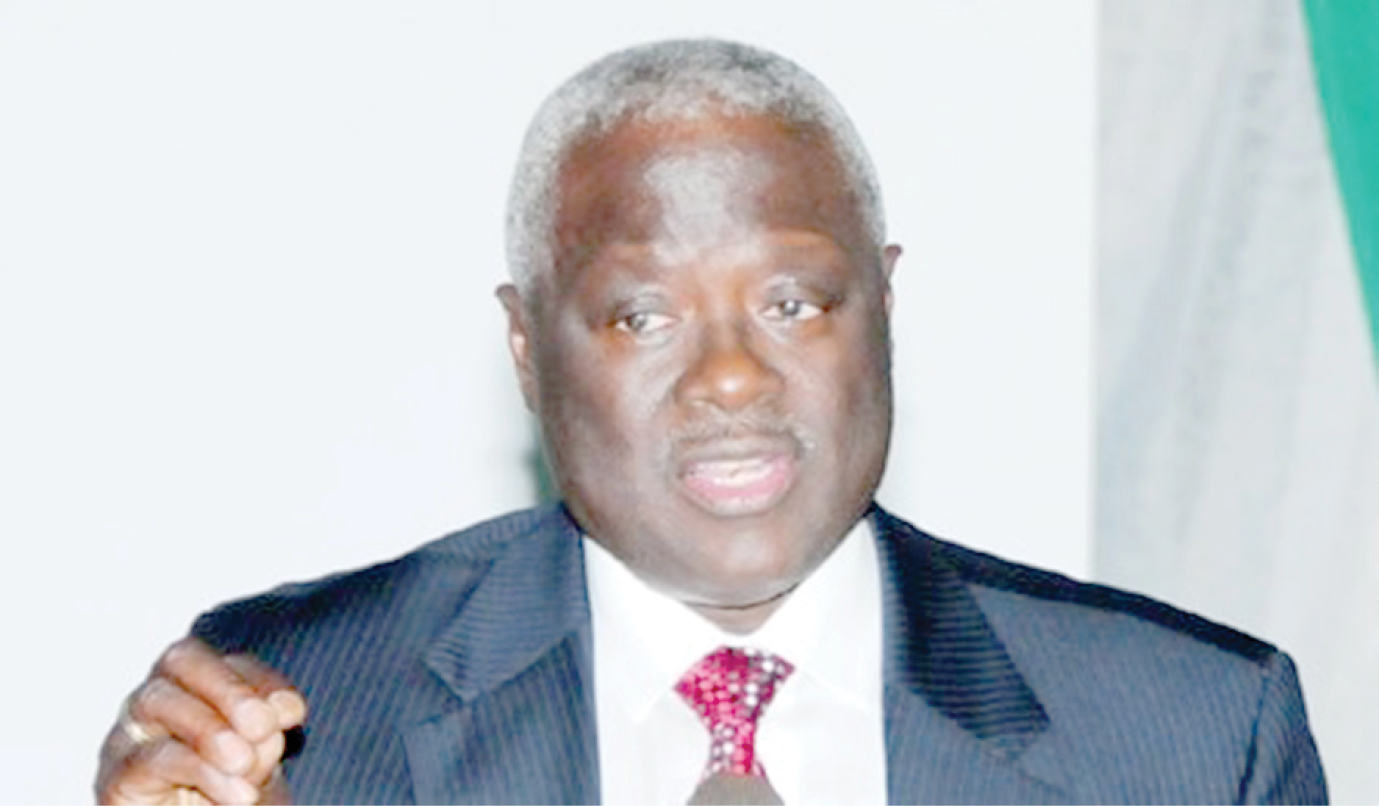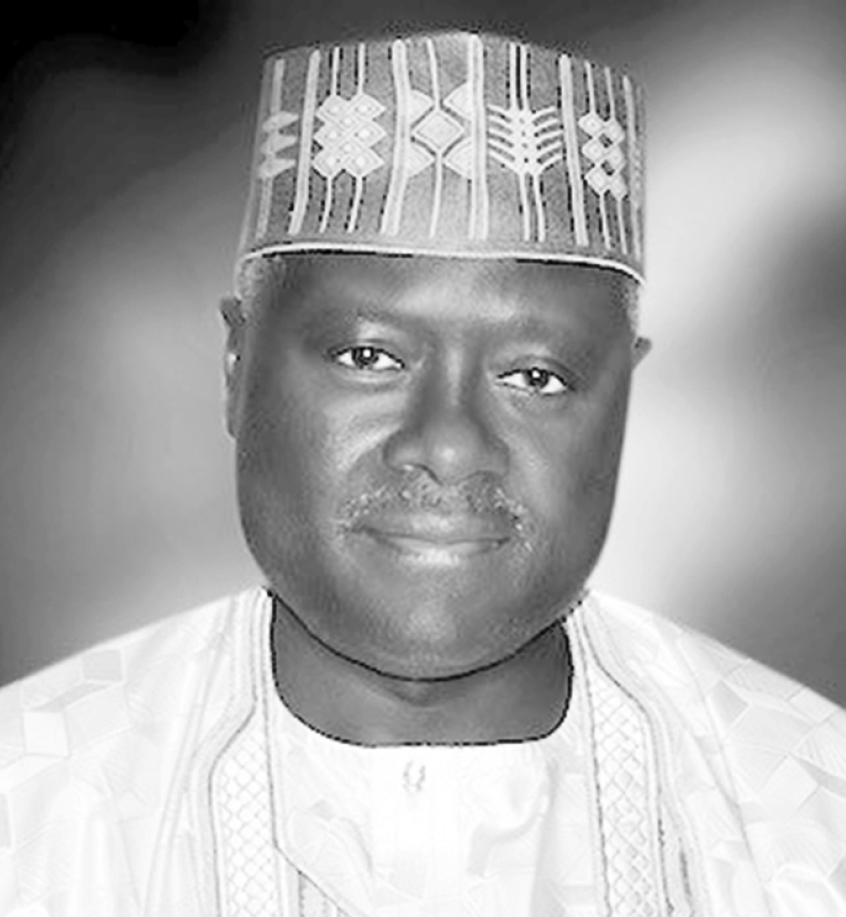UN, Arab League Must Work Toagether To End Sudan War – Gen Agwai
General Martin Luther Agwai (retd), a former Chief of Defence Staff (CDS) was commissioned into the Nigerian Armed Forces in 1972 and has held several positions including Chief of Training and Operations of the Nigerian Armed Forces and Director of Military Training at the Nigerian Defence Academy, Kaduna. He was the Nigerian Military Adviser at […]

Gen Martin Luther Agwai (retd)
General Martin Luther Agwai (retd), a former Chief of Defence Staff (CDS) was commissioned into the Nigerian Armed Forces in 1972 and has held several positions including Chief of Training and Operations of the Nigerian Armed Forces and Director of Military Training at the Nigerian Defence Academy, Kaduna. He was the Nigerian Military Adviser at Harare, covering the whole of Southern Africa between 1993 and 1996. He was a Directing Staff and Chief Instructor at the Command and Staff College Jaji – Kaduna. Before becoming the Chief of Army Staff, he was the Deputy Military Adviser at United Nations Headquarters, New York. He served as the commander of the combined United Nations-African Union peacekeeping force in Darfur. General Agwai led one of the biggest peacekeeping operations in the world with approximately 20,000 troops and 6,000 police under his command. In this exclusive interview, he spoke on the crisis in Sudan and proffered solution.
One of the claims for the 2021 coup in Sudan after the ouster of former President Omar Al-Bashir was to avert a civil war, but it appears the country has been toeing that path; what do you make of the situation in Sudan?
The situation in Sudan is unfortunate. When I was there, it was one of the largest countries in Africa. We thought that with the independence of South Sudan things would improve, but unfortunately, power play has set in.
It is very clear that it will take a long time to get democracy in Sudan because the military has taken so long. And people somehow found out that the easiest way to remain in political power is through the military. The situation we are seeing now started a long time ago, even before I went to that country in 2003.
People have gotten money and economic power and now using the military to stay in power. They don’t really want democratic forces to take place. That is what we are seeing in Sudan.
VP’s lodge project stalled after gulping billions of naira
On governors’ fat severance packages
This has been on for a long time and the world actually did little or nothing about it.
Apart from the internal wrangling in Sudan, I also feel that regional challenges are there. There is the issue of the inability of the region to handle such matters, as well as challenges in the Red Sea. All these things are coming into play.
Before 2009, as the first commander, I made a comment during an interview with the British Broadcasting Corporation (BBC), which became controversial. While some supported what I said, a lot of people criticised me, but I am glad that I have been proved right. I said that if the situation in Sudan continued the way it was at that time, and if there was no democracy in that country, the crisis would continue for the next decade. We are now even seeing a worse situation.

Again, one of the conditions given for a transition to a democratic government was collapsing the RSF into the armed forces. Why is it important to have that restructuring?
It is very important because there is the need to have a centralised command. The military is bottom up and up down. Somebody has to be in command and control. You can’t have two captains on a ship or two pilots on an aircraft, not co-pilots as both of them are equal. In that case, the country is heading for disaster.
This is exactly what is happening in Sudan. Also, remember that the military has a longer history than the rapid support forces. They have been in the centre of activity. It is an institution of government recognised by everybody.
In the military there are people who got training and discipline to be where they are. You can’t say the same thing about rapid support forces. And because they are a bunch of people picked from all over the place, they are only for power. And they got little military training and discipline.
Do you consider the current crisis as a consequence of Sudan’s political history, especially considering previous conflicts?
Yes, you can’t remove that because Sudan history is that of a group wanting to hold power at all costs. When I was in Sudan we had forces of justice and equality movement from Angelina, across the border; and they almost took over Khartoum. So, this is not the first time.
Everybody will tell you they are for peace, they want to see development and democracy, but there is nothing on ground that shows that people want that; rather, everybody wants power; and they don’t mind having it through the barrel of a gun.
This is what you are seeing. That is why there’s fight over Khartoum. Every time any of the groups feel they are strong enough, they would want to take Khartoum.
It is the same thing playing out now. And there are regional and global interests. You may not hear it in several places, but what is happening around the Red Sea is another big challenge.
The issue in Yemen is also a challenge. So there has to be a global solution to the internal crisis in Sudan.
Do you subscribe to the school of thought that the crisis is about resource control, not democracy?
You are absolutely correct. Some people have already gained power and are controlling the resources; and they would not want to give it up. Remember that if you control the government you also control the political situation of a country and determine who gets what and in what way.
So, people are fighting to see who gets what; they want to be in charge. That is the real challenge. And we know that there are resources in Sudan, especially in Dafur. That is why Dafur has been on the front burner for a long time. Remember the genesis of the opposition forces—the Rapid Forces – which started from Dafur; even the commander is Dafur. You can begin to understand what is coming on stage.
Are there ethnic dimensions to the conflict?
Definitely, there are ethnic dimensions. I remember that during the crisis in Dafur, the central government found out that she was fighting on two fronts —southern Sudan and Dafur. They created a force on horses, popularly known as Janjaweed. It is these forces that have now metamorphosed. They started there on horses and camels, now they have put that aside and have got strength. They are now technical. They now have all sorts of sophisticated weapons. That’s why they are breaking up to take on the national government and forces in order to take control.
Africa has barely recovered from the conflict in Ethiopia, which also shares borders with Sudan. What are the risks the crisis poses for the North East region?
There is an economic risk as trade between Sudan and other countries has been affected. Remember that the country is strategic in minerals, especially those found in Dafur. Those who want to buy have to go to other parts of Africa and the Middle East.
The Nile River has also created challenges in the region in terms of water – Ethiopia, Sudan, South Sudan and Egypt. There are people who have been recruited in Sudan to cross over to fight on another side in Yemen. And those you are helping will also help you.
These are all the challenges. And you have ethnic challenges in Sudan between Arab and non-Arab tribes. Then you have affiliation with neighbours who have historical connection that extends to Nigeria. There are lots of Nigerians in Sudan.
As it appears, the country doesn’t seem to have the capacity to resolve this conflict, what should the international community be doing to bring it to an end?
Well, I will say the African Union (AU) has been trying. The organisation tried to resolve the last problem; that is why you had the hybrid force for the first time in the world. However, trading partners of Sudan have to step up on this issue. Their friends in the Middle East and Arab brothers of Sudan have to step in and look at the interest of the common man first before the strategic trading partnership they want to establish.
Also, the United Nations cannot run away. And we should not forget that there is war between Russia and Ukraine. There is an extension of that war in Sudan because of the Red Sea and the presence of other superpowers that want to have bases around Sudan. These are all the things we have to put together to find a solution. There must be a global approach. All interests must be pulled together to remove this calamity, which may extend to a protracted civil war.
It appears that both parties have allies outside Sudan, who have taken sides, what do you think would be the cost of bringing peace to that country?
You are absolutely correct. It has to come with a cost; and that is why I am saying that interested parties have to remember that there have to be human beings in Sudan for them to enjoy the country. They cannot destroy and displace Sudanese and hope that there would be peace. This is because without peace there can’t be development and progress. Whatever economic benefit they are going to derive cannot be done at the expense of the people of Sudan. This will definitely create another humanitarian crisis. Something has to be done collectively. The UN and Arab League would have to work together to find a solution to this immediately.
